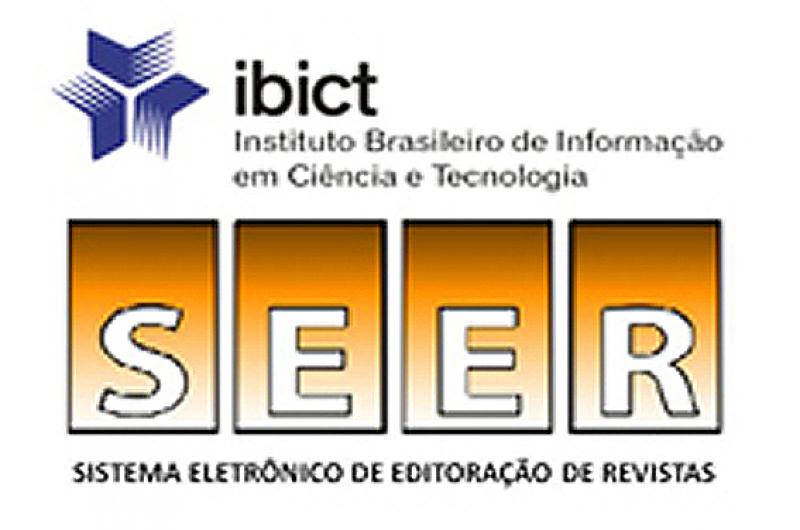The relationship of cognitive theory of meaningful learning with the conception of Integrated Higher Education in Professional and Technological Education
DOI:
https://doi.org/10.31416/rsdv.v7i2.92Keywords:
Meaningful learning, Integrated High School, Integrative PracticesAbstract
The present work aims to present the cognitive theory of meaningful learning, as shaped by the American
psychologist David Paul Ausubel (1818-2008), and discuss the possibilities of relation of meaningful learning with teaching practices in High School Integrated to Professional Education and Technological. The research
was made possible by means of a bibliographical review and a qualitative methodological approach that consisted in the delimitation of the central concepts of the theory of meaningful learning. The results of this analysis enabled the following conclusion: the cognitive theory of meaningful learning can help to consolidate integrative pedagogical practices that encamp a critical pedagogy, not a reproductive one of the dominant, non-mechanistic ideology that seeks social transformation, the development of reflexive critical thinking , promote access to scientific knowledge and historically constructed knowledge that will enable the learner to understand scientific and technological phenomena and develop the ability to think, create and execute.
References
AGRA G.; FORMIGA N.S; OLIVEIRA P.S; COSTA M.M.L; FERNANDES M.G.M; NÓBREGA M.M.L. Analysis of the concept of Meaningful Learning in light of the Ausubel’s Theory. Rev Bras Enferm [Internet]. 2019;72(1):248-55. DOI: http://dx.doi.org/10.1590/0034-7167-2017-0691. Acesso em 01 Abr 2019.
AUSUBEL, D.P. Educational psychology. A cognitive view.2. ed. New York: Holt, Rinehart & Wiston, 1968. Disponível em: https://archive.org/details/in.ernet.dli.2015.112045/page/n135. Acesso em 19 Abr 2019.
ARAUJO, R.M.L; FRIGOTTO, G. Práticas pedagógicas e ensino integrado. Revista Educação em Questão, v. 52, n. 38, p. 61-80, 2015.
ARAUJO, R.M.L; RODRIGUES, D.S. Referências sobre práticas formativas em educação profissional: o velho travestido de novo frente ao efetivamente novo. Boletim técnico do SENAC, v. 36, n. 2, p. 51-63, 2010.
CIAVATTA, M. A formação integrada: a escola e o trabalho como lugares de memória e de identidade In: FRIGOTTO G.; CIAVATTA M; RAMOS M. Ensino médio integrado: concepção e contradições. v. 3, n. 3.São Paulo, Cortez, 2005. p. 83-105.
FRIGOTTO, G.; CIAVATTA, M.; RAMOS, M. (Orgs). Ensino médio integrado: concepção e contradições. 3. Ed. –São Paulo: Cortez, 2012.
LIBÂNEO, J.C. Didática. São Paulo: Cortez, 1991.
LUKÁCS, G. As bases ontológicas do pensamento e da atividade do homem. Temas de Ciências Humanas, tradução de Carlos Nelson Coutinho, São Paulo: Livraria Editora Ciências Humanas, n. 4, p. 1-18, 1978.
WEIRICH, L.M. Formação e assimilação de conceitos científicos com abordagem da educação ambiental na educação infantil. 2015. Dissertação (Mestrado em Formação Científica, Educacional e Tecnológica) - Universidade Tecnológica Federal do Paraná, Curitiba, 2015. Disponível em:http://repositorio.utfpr.edu.br/jspui/bitstream/1/1346/1/CT_PPGFCET_M_Weirich%2C%20Ligiane%20Marcelino_2015.pdf. Acesso em 18 Abr 2019.
MACHADO, L.R.S. Ensino médio e técnico com currículos integrados: propostas de ação didática para uma relação não fantasiosa. In: MOLL, J. Educação profissional e tecnológica no Brasil contemporâneo: desafios, tensões e possibilidades. Porto Alegre, Artmed, 2009.
MOREIRA, M. A. Teorias de aprendizagem. São Paulo: Editora pedagógica e universitária, 1999.
MOREIRA, M. A. Organizadores Prévios e aprendizagem significativa. Revista Chilena de Educación Científica, 7, Nº. 2: 23-30, 2008. Disponível em: http://moreira.if.ufrgs.br/ORGANIZADORESport.pdf. Acesso em: 19 Abr 2019.
MOURA, D. H. Educação básica e educação profissional e tecnológica: dualidade histórica e perspectiva de integração. Holos, Natal, 2:1-27, 2007. Disponível em: http://www2.ifrn.edu.br/ojs/index.php/HOLOS/ar;cle/viewFile/11/110. Acesso em 05 Abr 2019.
OLIVERA, R.E. ; DONOSO, G.J; e ORELLANA, S.A. Tipos de Aperendizage en estudiantes de ensenanza media técnico profesional: un análisis desde la teoria de David Ausubel. Disponível em: http://www.memoria.fahce.unlp.edu.ar/art_revistas/pr.5162/pr.5162.pdfAcesso em 04 Abr 2019.
PISTRAK, M.M. (Org.). A escola-comuna. São Paulo: Expressão Popular, 2009.
SAVIANI, Dermeval. Trabalho e educação: fundamentos ontológicos e históricos. Revista brasileira de educação, n. 34, v. 12, pág. 152-180, jan./abr. 2007.
RAMOS, M. Possibilidades e desafios na organização do currículo integrado. Ensino médio integrado: concepção e contradições. São Paulo: Cortez, p. 106-127, 2005.
RAMOS, M. Concepção do ensino médio integrado. Texto apresentado em seminário promovido pela Secretaria de Educação do Estado do Pará nos dias, v. 8, 2008. Disponível em: https://www.iiep.org.br/curriculo_integrado.pdf . Acesso em: 05 Abr. 2019.
SANTOS, J.S; SILVA, E.P; PEREIRA, I.A.C. Benefícios pedagógicos do uso de equipamentos celulares em sala de aula.2018. Disponível em: http://dx.doi.org/10.20873/uft.2447-4266.2018v4n5p536. Acesso em: 19 Abr. 2019.















